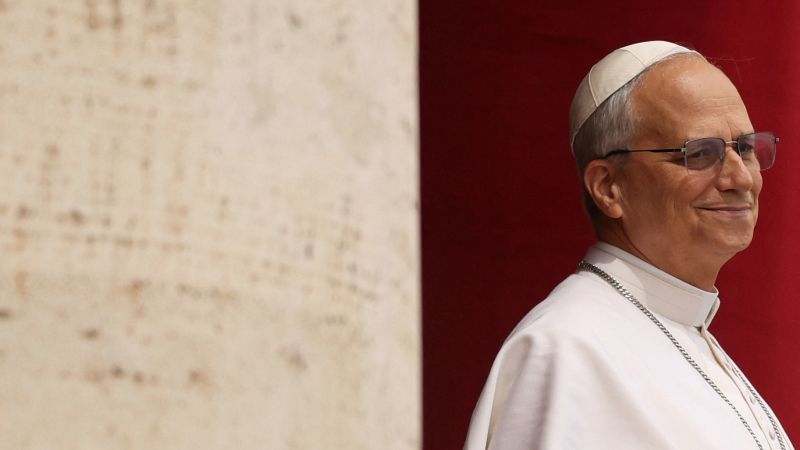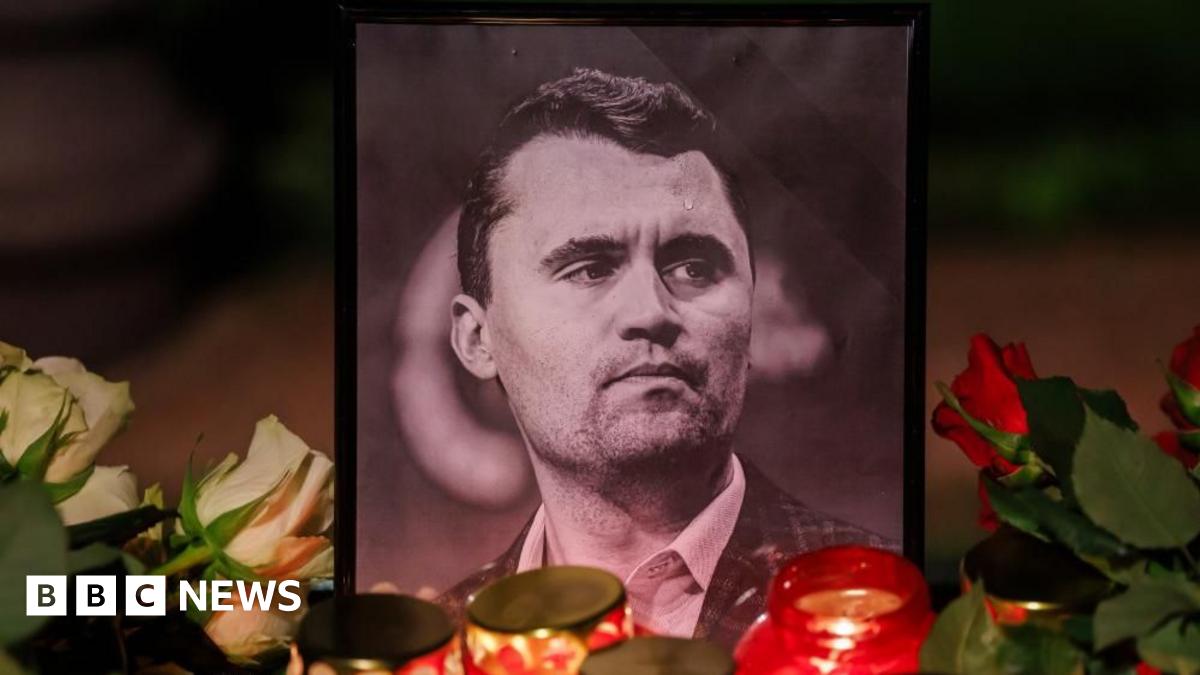The Papacy Of Leo XIII: Bridging Divisions, Implementing Reform

Welcome to your ultimate source for breaking news, trending updates, and in-depth stories from around the world. Whether it's politics, technology, entertainment, sports, or lifestyle, we bring you real-time updates that keep you informed and ahead of the curve.
Our team works tirelessly to ensure you never miss a moment. From the latest developments in global events to the most talked-about topics on social media, our news platform is designed to deliver accurate and timely information, all in one place.
Stay in the know and join thousands of readers who trust us for reliable, up-to-date content. Explore our expertly curated articles and dive deeper into the stories that matter to you. Visit Best Website now and be part of the conversation. Don't miss out on the headlines that shape our world!
Table of Contents
The Papacy of Leo XIII: A Bridge Between Centuries, A Legacy of Reform
Pope Leo XIII (1878-1903) reigned during a tumultuous period in history, marked by rapid industrialization, rising nationalism, and the burgeoning influence of modern scientific thought. His papacy, however, stands as a pivotal moment in the Catholic Church’s adaptation to the modern world, skillfully navigating complex political landscapes and implementing significant internal reforms. This article delves into the key aspects of Leo XIII’s papacy, exploring his efforts to bridge divisions and shape the future of the Church.
Leo XIII: A Pragmatic Response to Modernity
Unlike some of his predecessors who adopted a more confrontational stance towards modernity, Leo XIII embraced a pragmatic approach. He recognized the need for the Church to engage with the intellectual and social changes sweeping across Europe and beyond. This approach is evident in his numerous encyclicals, which addressed a wide range of issues, from social justice and labor relations to the relationship between faith and reason.
Rerum Novarum: A Landmark Encyclical on Social Justice
Perhaps Leo XIII’s most enduring legacy is his 1891 encyclical, Rerum Novarum ("Of New Things"). This groundbreaking document tackled the pressing social issues arising from the Industrial Revolution, condemning both unrestrained capitalism and Marxist socialism. Rerum Novarum advocated for a "just wage," the right to form unions, and the importance of private property, establishing the foundation for Catholic social teaching that continues to influence social justice movements today. You can read the full text of Rerum Novarum online via various Catholic resources [link to a reputable online source].
Bridging the Gap Between Faith and Reason:
Leo XIII also sought to reconcile faith and reason, a critical concern in an era increasingly shaped by scientific advancements. He encouraged the study of philosophy and science within a Catholic framework, emphasizing the compatibility of faith and reason, and famously promoting the study of scholastic philosophy, particularly the works of Thomas Aquinas. This approach aimed to counter the anti-clericalism and secularism that threatened the Church’s influence.
Reforms Within the Church:
Beyond addressing external challenges, Leo XIII implemented several significant internal reforms. He strengthened the Church's missionary efforts, particularly in Africa and Asia, and promoted the modernization of Church administration. He also established new dioceses and appointed numerous bishops who shared his vision of a more engaged and adaptable Church.
Political Maneuvering and International Relations:
Leo XIII was a shrewd political operator, navigating complex relationships with various European powers. He sought to protect the interests of the Catholic Church in the face of rising nationalism and anti-clerical governments. His diplomatic skills played a crucial role in maintaining the Church's influence throughout the world.
A Lasting Impact:
The Papacy of Leo XIII marked a turning point in the history of the Catholic Church. His pragmatic approach, combined with his profound social teaching, laid the groundwork for the Church’s engagement with the modern world. His legacy continues to influence Catholic social teaching, interfaith dialogue, and the Church's ongoing efforts to address social justice issues. His willingness to adapt and engage with the challenges of his time serves as a valuable lesson for leaders facing similar complexities today.
Call to Action: Learn more about the encyclicals of Pope Leo XIII and their enduring relevance to modern-day social and political issues. Explore the Vatican archives or other reputable historical sources to deepen your understanding of this important period in Church history.

Thank you for visiting our website, your trusted source for the latest updates and in-depth coverage on The Papacy Of Leo XIII: Bridging Divisions, Implementing Reform. We're committed to keeping you informed with timely and accurate information to meet your curiosity and needs.
If you have any questions, suggestions, or feedback, we'd love to hear from you. Your insights are valuable to us and help us improve to serve you better. Feel free to reach out through our contact page.
Don't forget to bookmark our website and check back regularly for the latest headlines and trending topics. See you next time, and thank you for being part of our growing community!
Featured Posts
-
 Colorado Rockies Dominate San Diego Padres 9 3 May 11 2025
May 13, 2025
Colorado Rockies Dominate San Diego Padres 9 3 May 11 2025
May 13, 2025 -
 Yankees Bellinger Faces Crucial 26 Million Contract Decision
May 13, 2025
Yankees Bellinger Faces Crucial 26 Million Contract Decision
May 13, 2025 -
 Tusks Accusation Russia Behind Warsaw Shopping Centre Fire
May 13, 2025
Tusks Accusation Russia Behind Warsaw Shopping Centre Fire
May 13, 2025 -
 Public Outrage Bridgend Councils Planned Sex Strangulation Presentation Draws Criticism
May 13, 2025
Public Outrage Bridgend Councils Planned Sex Strangulation Presentation Draws Criticism
May 13, 2025 -
 Authentic Peruvian Flavors Cnn Tastes The Popes Favorite Chiclayo Dish
May 13, 2025
Authentic Peruvian Flavors Cnn Tastes The Popes Favorite Chiclayo Dish
May 13, 2025
Latest Posts
-
 The Charlie Kirk Debate Examining His Influence On Young Voters
Sep 13, 2025
The Charlie Kirk Debate Examining His Influence On Young Voters
Sep 13, 2025 -
 The Ayrshire Wedding Crash A Four Year Investigation Concludes
Sep 13, 2025
The Ayrshire Wedding Crash A Four Year Investigation Concludes
Sep 13, 2025 -
 Major Climate Pattern Change What To Expect
Sep 13, 2025
Major Climate Pattern Change What To Expect
Sep 13, 2025 -
 Has Charlotte Flair Surpassed Ric Flairs Legacy The Nature Boy Weighs In
Sep 13, 2025
Has Charlotte Flair Surpassed Ric Flairs Legacy The Nature Boy Weighs In
Sep 13, 2025 -
 Fantasy Nascar Bristol 2025 Asterisk Mark Report And Analysis
Sep 13, 2025
Fantasy Nascar Bristol 2025 Asterisk Mark Report And Analysis
Sep 13, 2025
